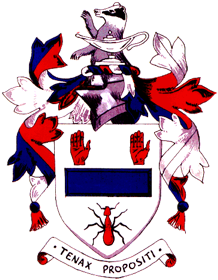At this Key Stage pupils are inquisitive, responsive and enthusiastic. In Ballymena Academy, pupils encounter a stimulating range of teaching methods, class groupings and engaging learning activities across a broad range of Learning Areas.
Establishing Work Patterns and Learning Routines
Pupils quickly develop strong ‘learning style’ preferences and establish the work patterns and learning routines which will be the basis of academic success. Pupils benefit from our Assessment for Learning programme which identifies what they know and understand as well as what they need to learn and improve on. This helps inculcate the work-ethic and study habits needed to become self-motivated and independent learners. The learning environment is supportive and caring.
Pupils expect to be set purposeful assignments which arise from classroom activities and out-of-school learning such as Geography or History Field Trips. Pupils undertake group and individual research projects and particularly enjoy those making use of e-learning resources.
Key Stage 3 provision reflects the N. Ireland Curriculum Framework. The timetable is managed flexibly so as to ensure that pupils have varied experiences across each learning day and week.
During Years 8, 9, 10 pupils will have carefully planned opportunities to study the listed subjects and to acquire essential skills and personal capabilities such as Communication, Using Mathematics, I.C.T., Managing Information, Thinking Skills, Problem Solving, Decision Making, Being Creative, Self-Management, Working with Others. GCSE subjects are chosen at the end of Key Stage 3.
Learning Intentions, Tracking Pupil Progress
Pupils should recognise the importance of every lesson. Academic progress is monitored closely and effective use is made of baseline data on entry to the school which allows challenging personalised targets to be set and monitored. Common Assessment Tasks are recorded on an electronic tracking system to ensure pupils are progressing and to target additional learning support.
Pupils are shown how to focus on the learning process as well as outcomes. Information is shared with learners through learning intentions and agreed success criteria. There are opportunities for active learning, peer and self assessment and self-evaluation.
ALIS and Midyis programmes bench-mark public exam results against a sample of UK schools. Together teachers, pupils and parents devise enabling strategies which strengthen commitment, enhance learning and improve achievement.
Pupil endeavour and success is recognised and celebrated in the classroom and through internal bulletins, school websites and magazine, Assemblies, Achievement Awards, Prize Day, local and regional Media.
